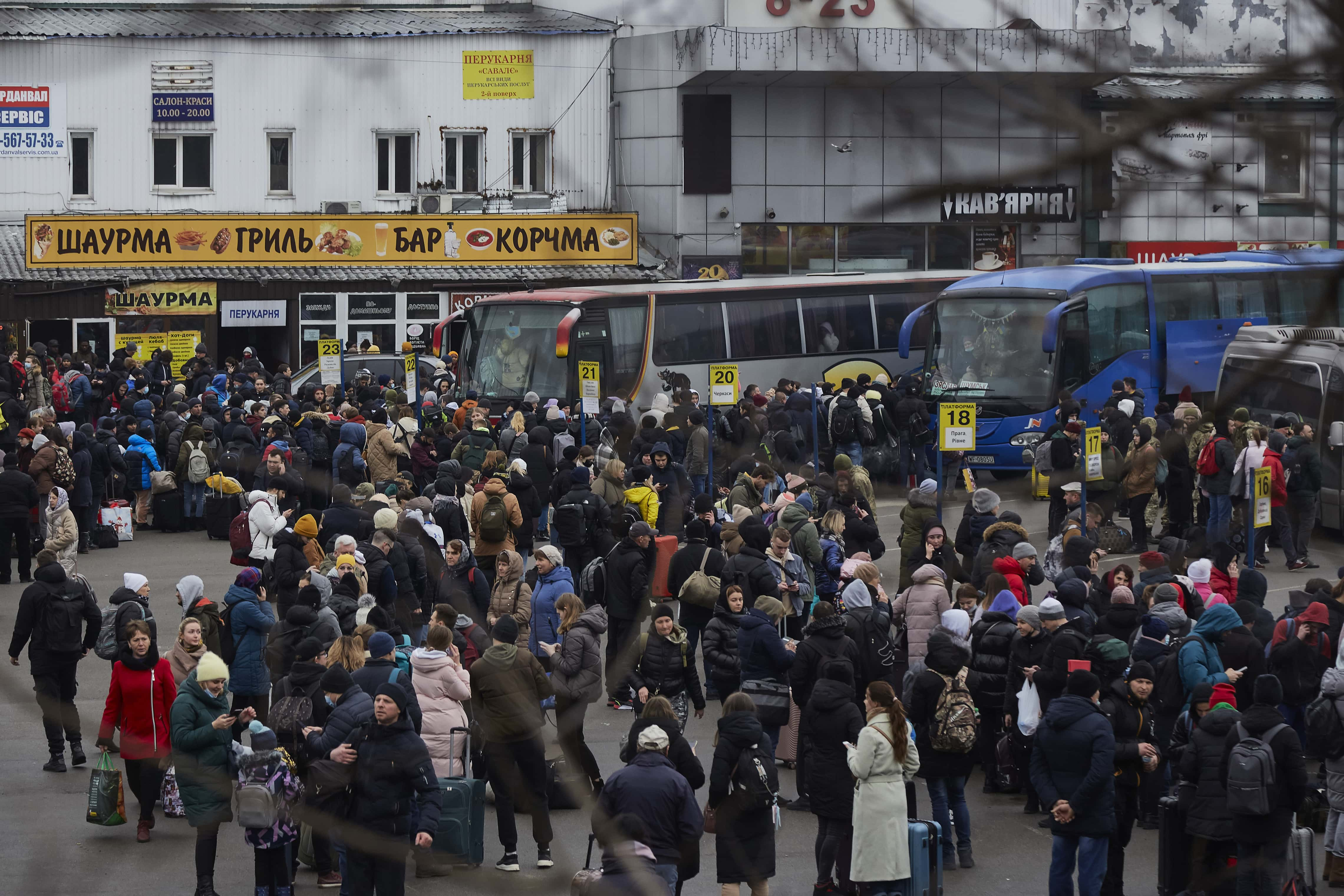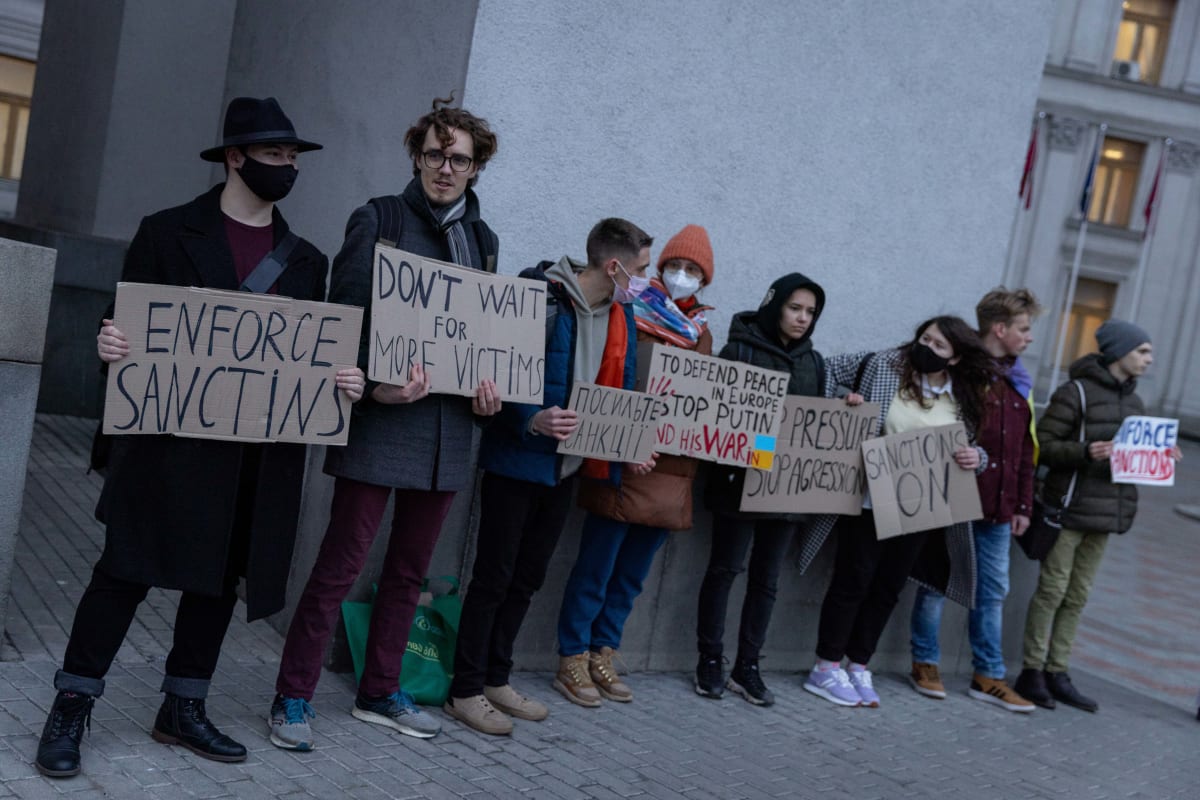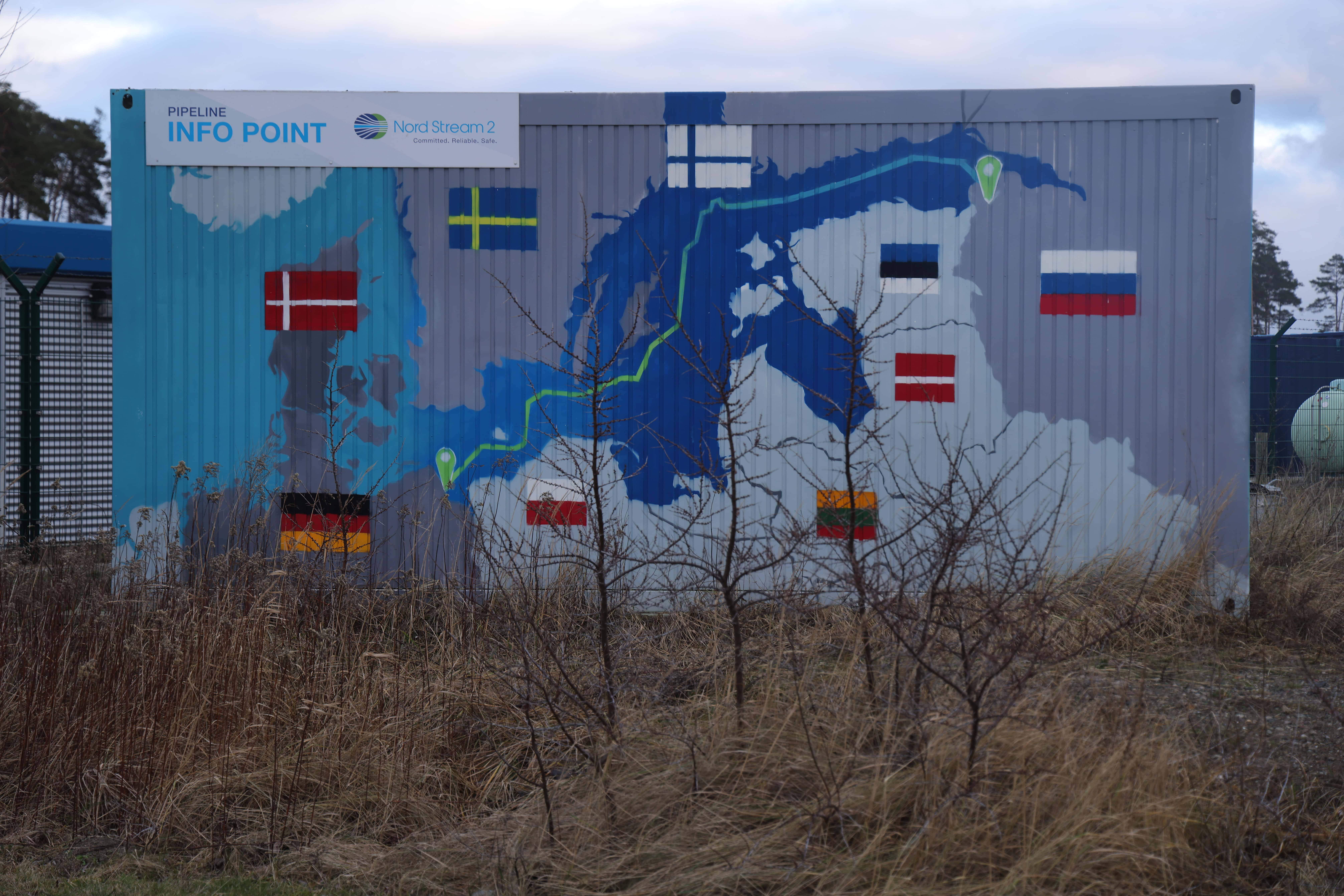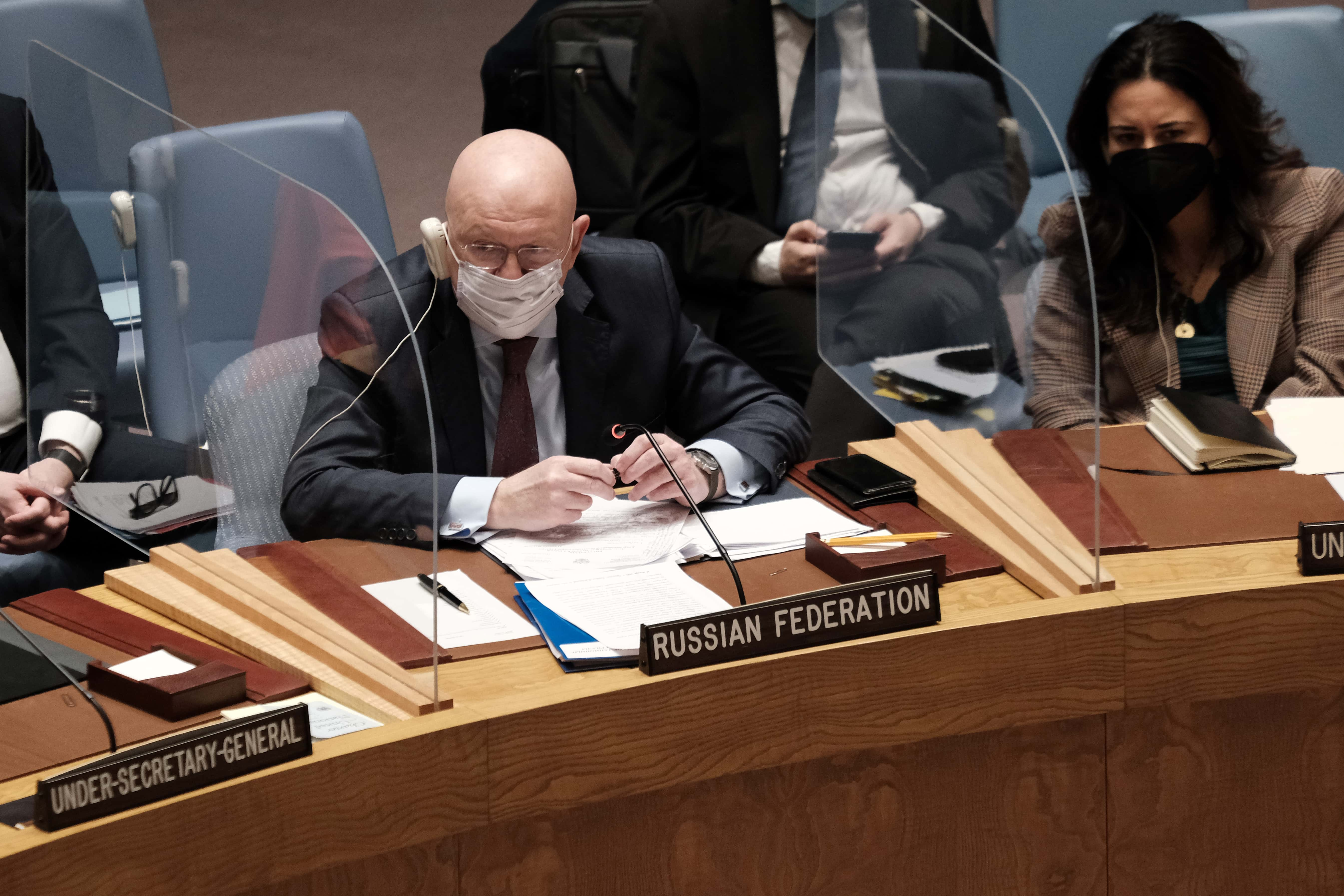HOW THE WEST WAS LOST: Why Nato and the US are struggling to stop the war in Ukraine

February 26, 2022 marks day three of the Russian invasion of Ukraine, and things are moving fast both on the ground and around the world. As Russia closes in on the capital of Kyiv, the West has been forced to issue a wide-ranging series of sanctions targeting Russian businesses, oligarchs, financial institutions, and even President Vladimir Putin himself.
However, it's common to find complaints online that the sanctions just don't do enough. Even as millions around the world protest the invasion, there are also plenty of armchair activists protesting the lack of consequences for Russia. There is also widespread anger at organizations like NATO and the United Nations, especially after Russia recently vetoed a resolution by the Security Council.
RELATED ARTICLES
Russia launches Ukraine offensive with missile strikes, here's what it means for USA
Russia-Ukraine conflict: What's happening and how is US getting involved
Criticism is easy, but action isn't, especially when a large nation like Russia is involved. The lack of consequences isn't just because western leaders don't have the will to stand up to Putin, but also because in many cases, they cannot afford to. The response we are seeing now is a consequence of globalization, and the dependence nations have on each other. Here's a breakdown of what's happening, and why further action can't be taken.

Key role of financial sanctions
So far, most nations have agreed to impose financial sanctions, limiting Russia's access to western markets and capital. This is by far the easiest to do because Russia is far more dependent on the west than the west is on Russia. We've seen this in action already, the US stock market hasn't collapsed the same way the Russian market did. Now, around $1 trillion in Russian banking assets has been frozen, which is a massive amount.
However, it's not a one-way street. "The premise of sanctions is to hurt the other guy more than you hurt your own interests. But that does not mean there will not be some collateral damage," noted Doug Rediker to NPR. Because of the global nature of modern economies, the US will definitely feel the bite of its own sanctions, since US companies have invested close to $96 billion in 2020. The situation is similar in Europe.
That's why leaders have to play a careful game. They can impose financial sanctions mostly because the US Dollar is the reserve currency, and therefore US allies have a reason to side with the US over Russia. Since the sanctions were imposed, Russia has turned eastwards to China for help, which is expected to take some of the bite out of western action. But the real challenge is not losing western markets, but access to SWIFT.

SWIFT is an international payments system used globally to transfer money electronically. Many have been calling for Russia to be booted from SWIFT, but doing so isn't entirely wise. If Russia was banned, it would mean foreign nationals or businesses with offices in Russia would be unable to send money out as easily. Furthermore, it would affect the ability to pay Russia for its goods and services, such as gas, which is still flowing despite the conflict.
Russia's central role in global oil supply
In 2020, Russia was the world's second-largest producer of crude oil and natural gas according to BP. Furthermore, Russia was also a key exporter of oil to the US, responsible for 7% of US oil imports in late 2021. The situation in Europe though is much more dire. Even without Nord Stream 2, Russia was responsible for nearly 50% of Europe's gas supplies. There's no possible scenario in which Europe can switch its source entirely without crashing its economies.
That's why not everyone is on board with kicking Russia out of SWIFT. Doing so would be European companies would be unable to pay for gas, and therefore at risk of losing their supplies. The US has been working on an alternative, but while it may be able to insulate itself, there's no way Europe can survive. Booting Russia from SWIFT has been dubbed "the nuclear option" for this exact reason, but is still on the table as desperate western leaders look for solutions.

A lack of global cooperation
A large amount of criticism has been levied at the UN for its failure to hold Russia accountable, but again this comes without fully understanding the situation. First and foremost, it is important to acknowledge that the UN was built well before the complexities of the 21st century. It rose from the ashes of World War 2, at a time when most nations were confident there would be no more deadly conflicts, especially given the presence of nuclear weapons.
The UN was not built for the 21st century, and like most bureaucracies, simply changed ever so slowly with the times. Russia is a permanent member of the UN and contributes about 1.602% of the UN's budget. That number may sound small, but it makes Russia the 14th largest contributor. Finances aside, casting Russia out of the UN would erode the very basis on which the organization was formed - to encourage global dialogue. As difficult as it sounds, there's never been a greater need for Russia to be at the table, especially when they are coming voluntarily.
There's now an effort underway to challenge Russia's seat on the UN Security Council and their presidency, but it will be hard to make a change when two other nations stand in the way of western allies - India and China. India is highly dependent on Russia for its defense purposes and China sees Russia as a key ally given their mutual distrust of the west in general. Therefore, both nations are highly unlikely to back such drastic action, as it could put their own security interests in jeopardy. This is why Russia is able to turn east to offset the effects of western sanctions.

There is indeed a lack of global corporations, but it is not because of a lack of interest or concern for Ukraine. India faces security risks from both China and Pakistan, while China has become increasingly belligerent near Taiwan. Other Russian allies also have an interest in ensuring the country maintains its status quo, so it will be extremely hard to expect a united front from the entire world.
Military action seems distant
Ever since the invasion broke out, the internet was swarmed with memes of World War 3. Funny as they might be, the memes seem to completely ignore the reality on the ground. This is not a world war or even a European war. Ukraine has been left to fend for itself, save the supply of weapons and defensive equipment. This is for a very good reason. Both Russia and the west are nuclear-armed, and Putin has hinted he is open to using that option if need be.
The effects of Putin's threats are already visible. On February 25, Sweden and Finland said categorically they would not join NATO, even though they were considering doing so before the invasion. US President Joe Biden has also made it clear US troops won't engage in ground combat in Ukraine. Of course, this could change if Russia decided to expand its conquest beyond Ukraine and attack a NATO country, but even then Putin's threat of nuclear war remains strong.
Overall, there are no good options for western leaders right now. There is a desire to hold Putin accountable, but it is not being matched with actions because of the complex nature of the modern world. A global war is never good for the global economy, and given that nations are still recovering from the Covid-19 pandemic, they will be even more wary of disrupting the carefully-balanced world order. Does that mean Putin will get away without consequences? Probably, but it won't be because of a lack of consideration for Ukraine.










